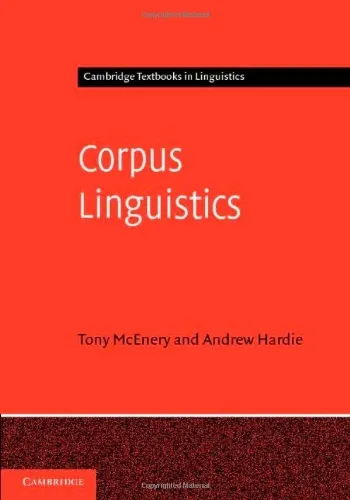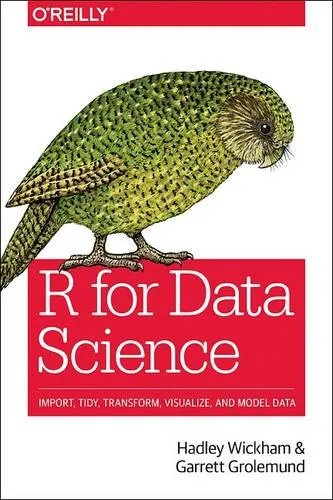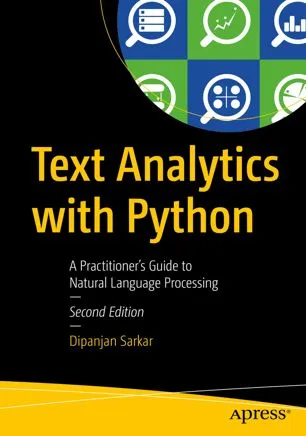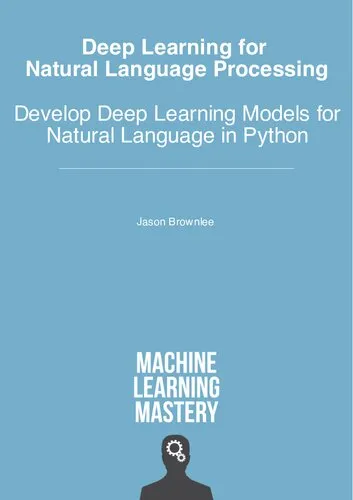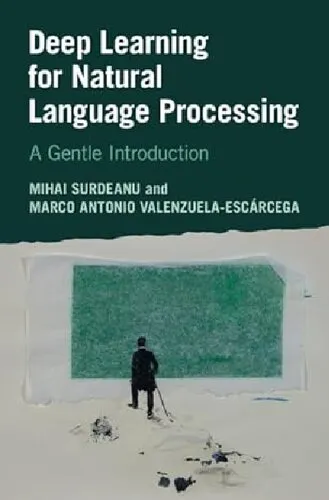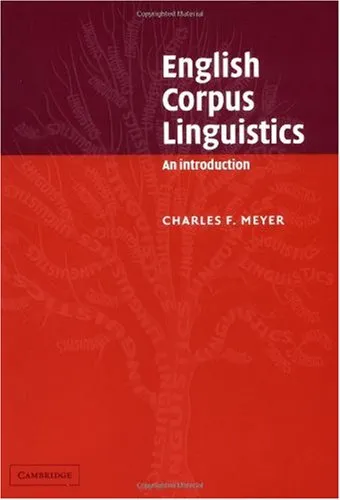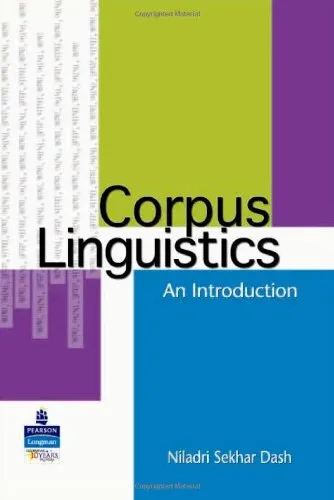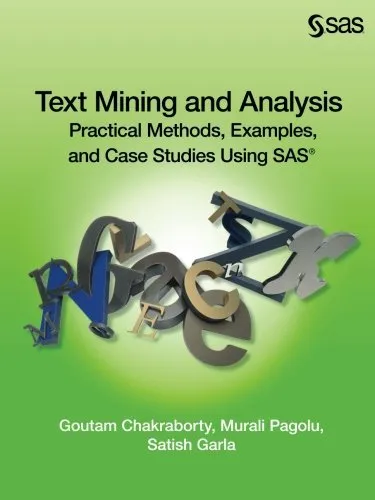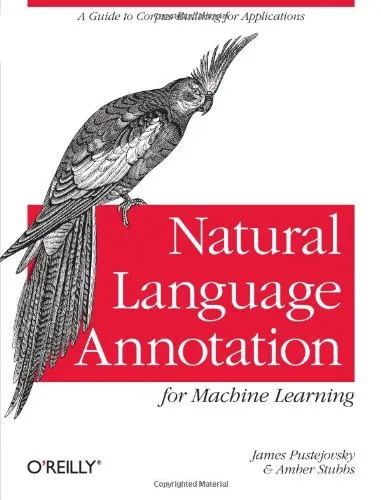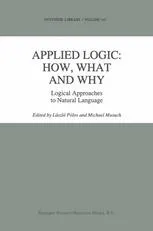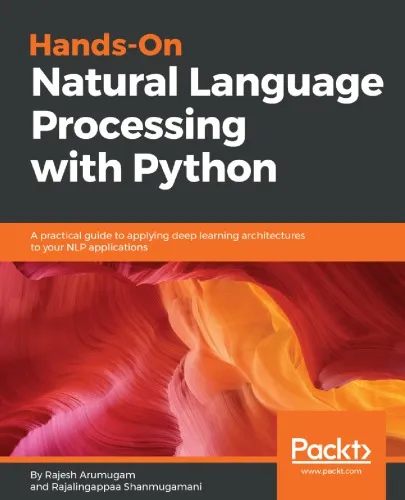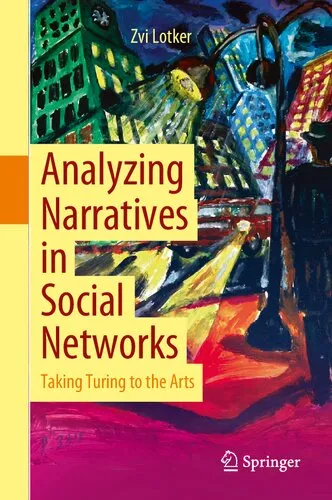Corpus Linguistics: Method, Theory and Practice
4.5
Reviews from our users

You Can Ask your questions from this book's AI after Login
Each download or ask from book AI costs 2 points. To earn more free points, please visit the Points Guide Page and complete some valuable actions.Related Refrences:
Introduction to 'Corpus Linguistics: Method, Theory and Practice'
The field of corpus linguistics has profoundly transformed how we understand language by focusing on empirical data from real-world communication. Written by Tony McEnery and Andrew Hardie, 'Corpus Linguistics: Method, Theory and Practice' delivers a comprehensive exploration of this fascinating discipline, combining theoretical underpinnings with practical applications. This highly acclaimed book appeals to linguistics enthusiasts, researchers, and students alike, offering clarity, depth, and practical insights for anyone interested in the study of language through corpora.
In this introduction, we take a detailed look at what this book offers, breaking it down into a summary of its contents, the key takeaways, famous quotes, and the reasons why this work is important within the realm of linguistics and beyond.
A Detailed Summary of the Book
The book is structured to provide both newcomers and seasoned linguists with a powerful toolkit for understanding and conducting corpus-based research. It begins by unpacking what corpus linguistics is, defining its scope and purpose. The authors emphasize the importance of analyzing large collections of text—corpora—as opposed to relying on intuition or isolated examples. The discussion moves seamlessly from the historical evolution of corpus linguistics to its modern applications in a range of disciplines, including sociolinguistics, pragmatics, and discourse analysis.
McEnery and Hardie dedicate chapters to exploring how corpora are built, annotated, and analyzed, providing a methodology that readers can follow step by step. The book also addresses critical topics such as frequency analysis, collocations, and concordances, while introducing computational tools and techniques that are central to corpus linguistics, like tagging and parsing.
What sets the book apart is its emphasis on practical engagement. Each chapter provides examples and case studies that ground theoretical principles in real-world data. The authors encourage readers to reflect on the strengths and limitations of corpus-based methods, making this an essential reference for both beginners and advanced linguists.
Key Takeaways
- Corpus linguistics is characterized by an empirical approach to language, relying on real-world data rather than intuition.
- The book introduces key tools and methodologies, such as frequency analysis, concordancing, and corpus annotation.
- Readers gain insight into building their own corpora and using existing ones effectively.
- The importance of understanding linguistic patterns statistically and digitally is emphasized throughout.
- The interdisciplinary nature of corpus linguistics is highlighted, showing its applications in fields like sociology and psycholinguistics.
Famous Quotes from the Book
“The corpus, rather than speculative theory, is the ultimate arbiter for determining what patterns exist in language.”
“Corpus linguistics offers a methodology for bridging the gap between intuition and evidence in language research.”
“The study of corpora reveals how language naturally operates in context, which is crucial for understanding its intricate dynamics.”
Why This Book Matters
The significance of 'Corpus Linguistics: Method, Theory and Practice' cannot be overstated. As the role of data-driven approaches continues to grow across disciplines, this book equips linguists and researchers with the frameworks, tools, and theoretical grounding necessary to excel in the digital age. Corpus linguistics is not limited to linguistic research; it has important implications for understanding cultural trends, building natural language processing (NLP) systems, and improving language teaching methodologies.
This book also matters because it democratizes access to corpus-based research. It provides step-by-step guidance for constructing and analyzing corpora, ensuring that even those with limited technical knowledge can engage with this powerful methodology. Moreover, it encourages critical reflection, helping readers understand both the potential and limitations inherent in corpus-based approaches.
In academic and professional contexts, the book has empowered countless researchers to harness the vast amounts of textual data available in the modern world, uncovering patterns in language that were previously invisible without computational tools. For anyone interested in investigating how language works in practice, rather than in abstract theory, McEnery and Hardie's work is indispensable.
In conclusion, 'Corpus Linguistics: Method, Theory and Practice' stands out as a landmark text in linguistics. With its blend of theory, practice, and critical thinking, it has become a cornerstone for language researchers and a vital resource for understanding corpora in the contemporary world.
Free Direct Download
You Can Download this book after Login
Accessing books through legal platforms and public libraries not only supports the rights of authors and publishers but also contributes to the sustainability of reading culture. Before downloading, please take a moment to consider these options.
Find this book on other platforms:
WorldCat helps you find books in libraries worldwide.
See ratings, reviews, and discussions on Goodreads.
Find and buy rare or used books on AbeBooks.
1406
بازدید4.5
امتیاز0
نظر98%
رضایتReviews:
4.5
Based on 0 users review
Questions & Answers
Ask questions about this book or help others by answering
No questions yet. Be the first to ask!
